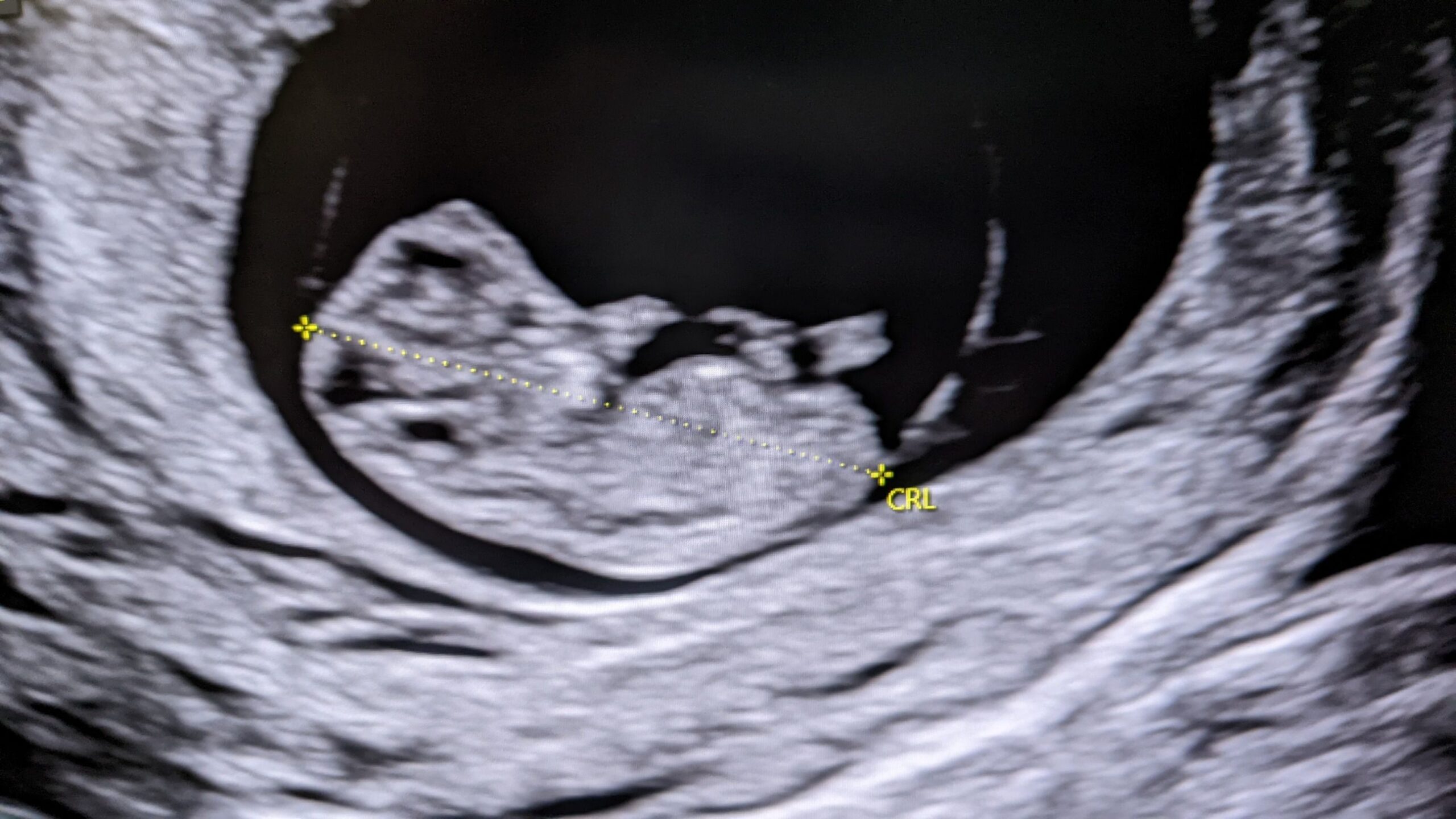Why get a dating ultrasound in early pregnancy?
22 May 2025

During pregnancy monitoring, several obstetrical ultrasounds are prescribed by your healthcare professional (doctor, midwife or specialized nurse practitioner). These examinations allow you to monitor the baby’s development and ensure its well-being, as well as that of the mother, notably by evaluating the uterus and its appendages. In addition to being an excellent diagnostic tool, an obstetrical ultrasound at the very beginning of pregnancy – often called a dating ultrasound – confirms the presence of the embryo even before nuchal translucency is measured. This early ultrasound, which is very reassuring for future parents, should be readily available in the private sector for patients willing to pay for it, as it meets several clinical and emotional needs: it reduces the anxiety linked to the uncertainty of early pregnancy, enables precise dating of gestation, confirms embryonic viability, and quickly identifies possible complications, such as ectopic pregnancy or miscarriage.
Why have a dating ultrasound at Prenato?
A dating ultrasound for medical reasons
First of all, while all pregnant women look forward to seeing their baby in the ultrasound room, it’s important to know that the only ultrasound recommended in the first trimester and prescribed straight away is the ultrasound at the end of the first trimester, often referred to as nuchal translucency. A dating ultrasound is therefore not mandatory, and is not prescribed unless there is a medical reason to do so. You could therefore be pregnant and never have had this type of obstetrical ultrasound before the 12th week. Although this examination provides great reassurance to the mother-to-be, it must be prescribed for medical reasons. Indeed, it has been shown that confirming the viability of the pregnancy boosts a woman’s motivation to adopt better eating habits and take better care of herself, which also benefits the unborn embryo. Despite the many benefits associated with this dating test, women face a number of obstacles, including obtaining a prescription, to accessing it, even though it could significantly ease their worries and reduce their anxiety. However, now that this examination has been removed from routine care, you can discuss it with your healthcare professional. If you explain that this examination would be beneficial for you, and specify your intention to have it done privately, he or she is likely to agree to provide you with a prescription.
Calculating your baby’s “due date” (EDD)
Usually performed in the first weeks of pregnancy (8 to 11 weeks), a dating ultrasound is most useful for women who have irregular periods, who have been using contraception, or who do not know when they became pregnant. This ultrasound can also be prescribed in the context of vaginal bleeding, a history of miscarriage(s), or for couples undergoing fertility treatments such as in-vitro fertilization (IVF). A dating ultrasound is used to “date” your pregnancy by measuring the embryo. It is usually a good opportunity to determine if the embryo is viable, to confirm the presence of a heart beat, and to assess if it is a singleton or multiple (twins) pregnancy. Our medical imaging technologists are experienced in obstetrical ultrasounds and can determine the anatomical location of a pregnancy in order to detect extra-uterine (ectopic) implantation or risks of complications. A dating ultrasound also allows for the determination of your estimated date of delivery (EDD), also known as your baby’s “due date”. The EDD obtained via dating ultrasound is usually the most accurate.
Obstetrical ultrasounds are our specialty
Why book your dating ultrasound with Prenato? To have access to an expert team of professionals, clear images, and a premium healthcare experience.
Dating ultrasounds are available at our following locations: Quebec City, Brossard (DIX30), Blainville, and at our Vaudreuil-Dorion partner location. You may book your appointment by calling 1-877-362-8602 or Email us. We look forward to seeing you!


